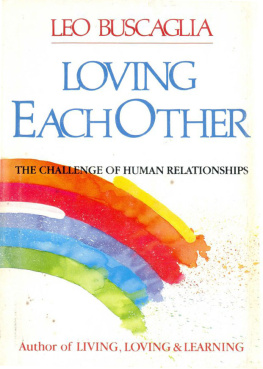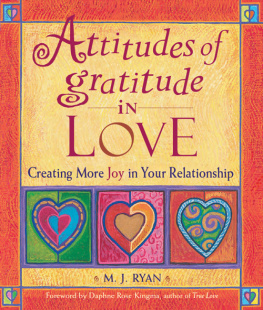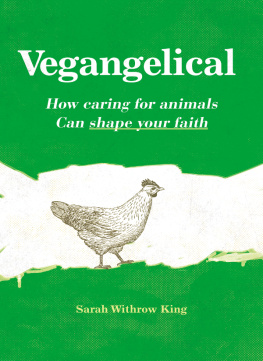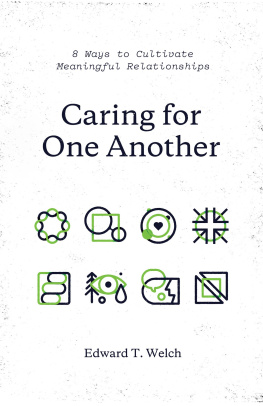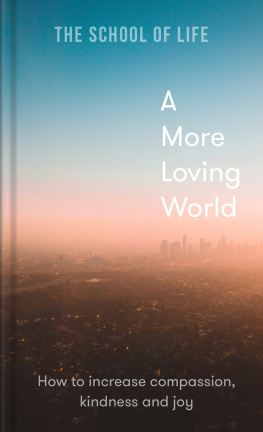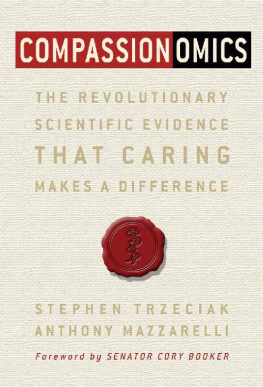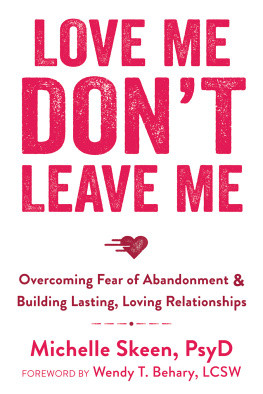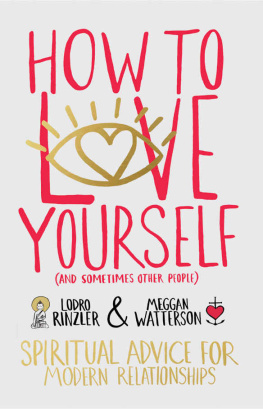Why are we so afraid to commit ourselves to loving each other?
This is a book about love, tenderness, compassion, caring, sharing, and relating the most vital of human behaviors. Without these qualities life is empty though we may have the best of health, the most comfortable of homes, the most impressive of bank balances. Even knowing this, we spend so little time developing these behaviors. In fact, we are living in a society in which such words as love and commitment have been relegated to sentimental, old-fashioned nonsense. Skeptics are only too ready and capable with quick wit and stinging phrases to ridicule those who continue to speak of broken hearts, of devastating loneliness and the mystical ways and power of love.
If you love, you are considered naive. If happy, you are considered frivolous and simple. If generous and altruistic, you are considered suspect. If forgiving, you are considered weak. If trusting, you are considered a fool. If you try to be all of these things, people are sure you are phony. This flippant attitude has had much to do with the breeding of a society of detached, noncommitted persons too sophisticated to admit to their confusion and unhappiness and too caught up in ego to risk doing anything about it. It has perpetuated isolation and devalued basic human values. This, in spite of the fact that over the past years there has been amassed a vast scientific literature which proves that relationships do matter, that intimacy is necessary to sustain a good, productive life, that a loving touch or a hearty laugh can heal, that positive relating brings physical, psychological and mental well being. Such contemporary philosophers and scientists as Ashley Montagu, Carl Rogers, A. H. Maslow, Harold Bloomfield, Elizabeth Kbler Ross, Desmond Morris, James Lynch, Theodore Isaac Rubin, Margaret Mead, Norman Cousins, David Viscott, Clark Moustakas, William Menninger, Melanie Klein, C. S. Lewis, Nathaniel Branden and others have persisted in their writings and research, in spite of their critics, in affirming that a society devoid of these basic human needs is doomed.
Our growing inability to relate one with another is reaching frightening proportions. Soon the two-parent family will be considered the exception. Notions of marriage, of extended families and long-lasting friendships are more and more being considered outmoded. Meaningless sexual promiscuity is accepted as the norm and even being advocated as useful behavior for solving problems in failing marriages. Emotional detachment, maintaining our distance from others, is being prescribed as a solution for avoiding pain. Neglect and abuse of children and the aged is a growing problem. Social and religious institutions, which in the past helped to set standards of behavior and brought people together in companionship, are actively downgraded. Individualism, independence and personal freedom are valued above love, commitment, and cooperation.
Examining the complex nature involved in loving each other (the dynamic and everchanging nature of two or more unique and whole individuals agreeing to emerge and blend in long-term commitment) is not an easy task. Nevertheless, that is the purpose of this book. It seems to me vital and necessary, since material dealing with the dynamics of loving each other is rare. Without this knowledge we end only by living together in hate, fear, loneliness, and continuing to hurt each other in ignorance. Happily, the choice is still ours to make.
Like everyone I know, my life, too, has been a long series of interwoven relationships, both good and bad. I value them all. For it was mainly through these relationships that I survived my infancy, completed my childhood, ended my adolescence and moved toward a dynamic state of growing to maturity. They have been living lessons in meeting defeat, letting go and overcoming fear. They have helped to free my spirit and eradicate my fear of loving. My relationships are still my major source of stimulation, causing me to remain open, curious, eager to learn and challenged by change. Now I understand more than ever the Poet W.H. Audens remark, We must love one another or die!
Isnt it time that we forget our petty egos, give up our fear of appearing sentimental or naive and come together in our universal need, one for the other? Why is it so difficult for us to embrace each other fearlessly and with passion and to say, Human being, take my human hand?
There is a wonderful fable that tells of a young girl who is walking through a meadow when she sees a butterfly impaled upon a thorn. Very carefully she releases it and the butterfly starts to fly away. Then it comes back and changes into a beautiful good fairy. For your kindness, she tells the little girl, I will grant you your fondest wish. The little girl thinks for a moment and replies, I want to be happy. The fairy leans toward her and whispers in her ear and then suddenly vanishes.
As the girl grew, no one in the land was more happy than she. Whenever anyone asked her for the secret of her happiness, she would only smile and say, I listened to a good fairy.
As she grew quite old, the neighbors were afraid the fabulous secret might die with her. Tell us, please, they begged, tell us what the fairy said. The now lovely old lady simply smiled and said, She told me that everyone, no matter how secure they seemed, had need of me!
We all need each other.
There comes a time in some relationships when no matter how sincere the attempt to reconcile the differences or how strong the wish to recreate a part of the past once shared, the struggle becomes so painful that nothing else is felt and the world and all its beauty only add to the discomfort by providing cruel contrast.
DAVID VISCOTT
We are not evil, inadequate or incompetent when our relationships fail. It may have been that we were simply overconfident about them, not adequately prepared for them or unrealistic in our expectations of them. Not all relationships are right. As long as values change, insights expand, human facades remain impenetrable and human behaviors unpredictable, we will make mistakes.
The very measure of a good relationship is in how much it encourages optimal intellectual, emotional and spiritual growth. So, if a relationship becomes destructive, endangers our human dignity, prevents us from growing, continually depresses and demoralizes us and we have done everything we can to prevent its failure then, unless we are masochists and enjoy misery, we must eventually terminate it. We are not for everyone and everyone is not for us. The question is, If we cannot be with another, can we at least not hurt them? Can we, at least, find a way to coexist?
We have been poisoned by fairy tales.
ANAIS NIN
Fallen myths can distill venom.
DENIS DE ROUGEMONT
And they lived happily ever after.

